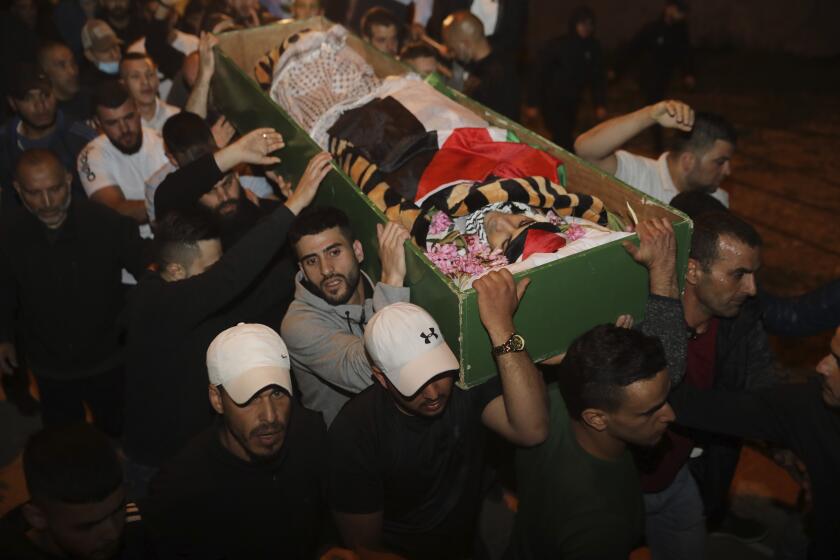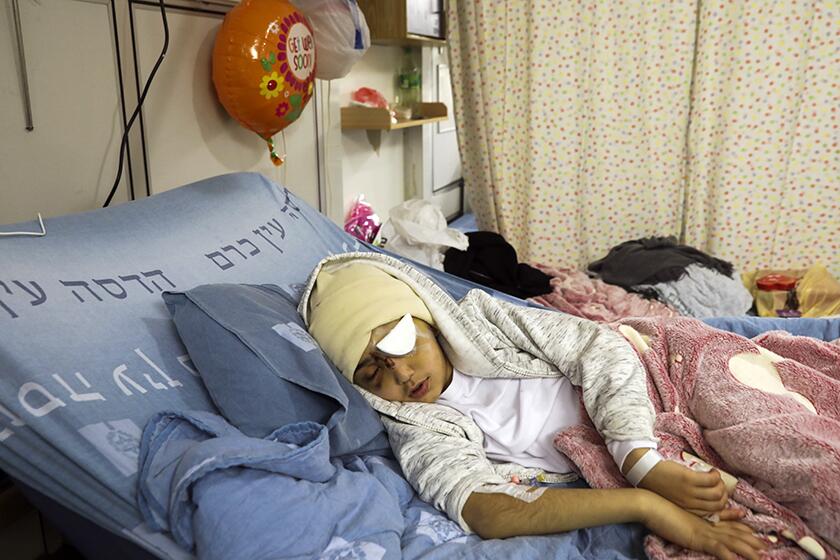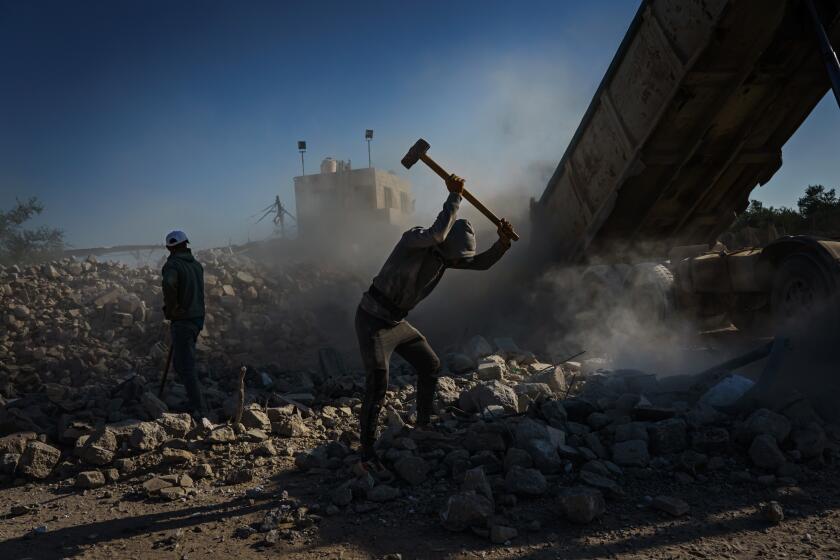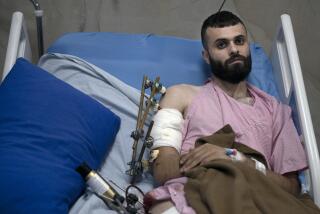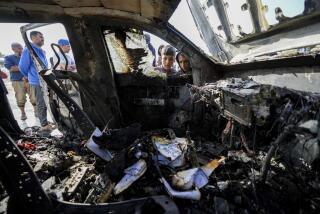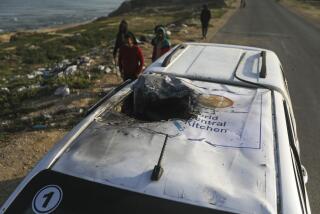Israeli officer charged in killing of autistic Palestinian in high-profile case
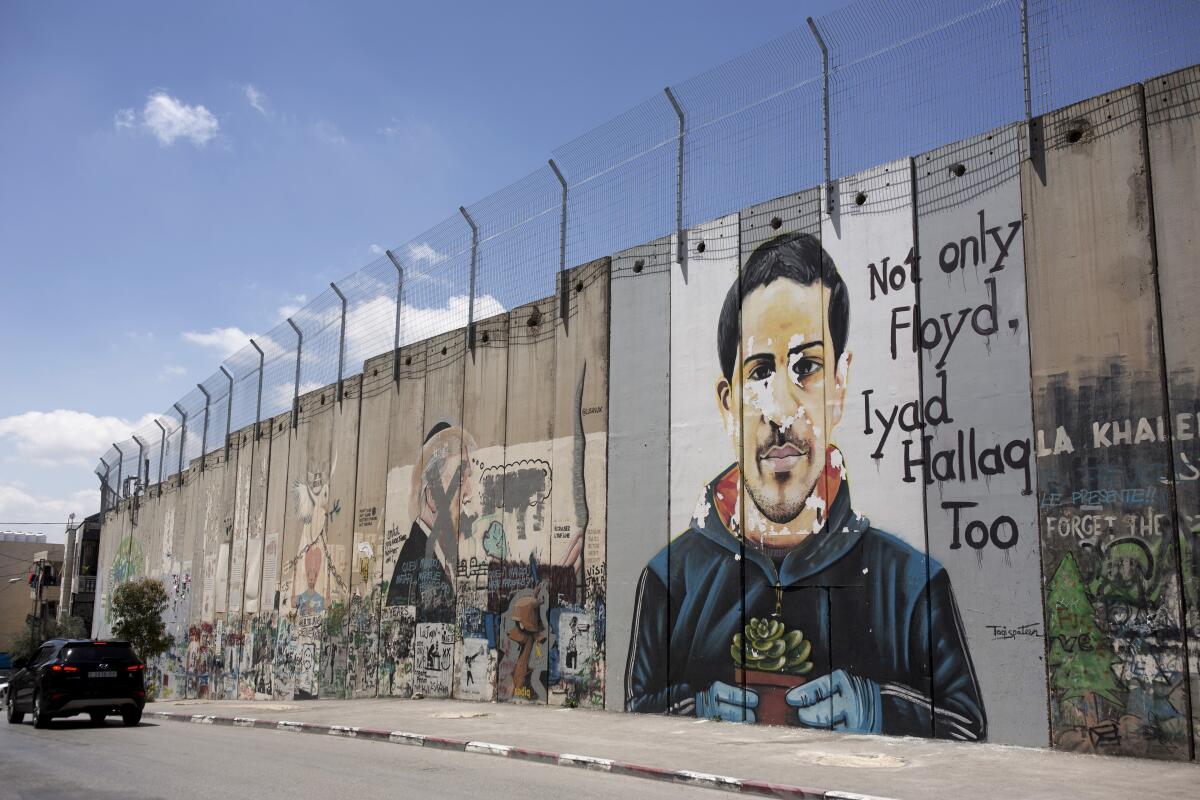
JERUSALEM — In a case that drew comparisons to the killing of George Floyd, Israeli prosecutors Thursday charged a Border Police officer with reckless manslaughter in the fatal shooting of an autistic Palestinian man in Jerusalem’s Old City last year.
The indictment came just over a year after the shooting of Iyad Halak, whose family has criticized Israel’s investigation into the killing and called for much tougher charges.
Rights groups say Israel rarely holds members of its security forces accountable for the deadly shootings of Palestinians. Investigations often end with no charges or lenient sentences, and in many cases witnesses are not even summoned for questioning.
The officer, who remains unidentified in the indictment submitted to the Jerusalem District Court on Thursday, was charged with reckless manslaughter and, if convicted, could face up to 12 years in prison.
“We want justice for our son,” Halak’s father, Khairi, said in response to the indictment. “Why is it that when an Arab kills they say he is a murderer, and when an Israeli kills they say reckless manslaughter?”
Halak, 32, was fatally shot just inside the Old City’s Lion’s Gate on May 30, 2020, as he was on his way to the special-needs institution that he attended. The officer’s commander, who was also present during the incident, was not charged.
Israel’s defense minister has apologized for the Israeli police’s deadly shooting of an unarmed autistic Palestinian man.
Halak’s death prompted a series of demonstrations in which Jews and Palestinians protested against police violence. Some referred to the killing of Floyd, which sparked a wave of protests across the U.S. demanding racial justice and police accountability. Israeli leaders expressed regret over the shooting death of Halak.
Ayman Odeh, head of the Joint List of Arab parties in Israel’s parliament, criticized the indictment, tweeting that reckless manslaughter was “an infuriating and denigrating charge,” given the gravity of what happened.
The area of the shooting is a frequent site of confrontations between Palestinians and Israeli security forces, and the Old City’s narrow streets are lined with hundreds of security cameras monitored by police. But as the investigation proceeded last summer, prosecutors claimed that none of the cameras in the area had worked, and there was no footage of the incident.
The Old City is part of East Jerusalem, which Israel seized in the 1967 Mideast War and annexed to its capital in a move not recognized by most of the international community.
Israeli authorities clear police of wrongdoing in the case of a boy who lost an eye after apparently being shot in the face by an Israeli officer.
Prosecutors from the police internal affairs department said in a statement that the decision to charge the officer “was made after deep examination of the evidence, examination of all the circumstances of the incident and the claims heard during the officer’s hearing.” They said that Halak’s death was a “serious and unfortunate incident” and that the officer shot him “while he took an unreasonable risk that he would cause his death.”
According to accounts at the time, Halak was shot after running away and failing to heed calls to stop. Two members of Israel’s paramilitary Border Police then chased Halak into a garbage room and shot him as he cowered next to a bin.
In October, when prosecutors recommended charges against the officer, the Israeli Justice Ministry said that the wounded Halak pointed to a woman he knew and muttered something. The officer then turned to the woman and asked her in Arabic, “Where is the gun?”
She replied, “What gun?” At that point, the officer under investigation fired again at Halak.
News Alerts
Get breaking news, investigations, analysis and more signature journalism from the Los Angeles Times in your inbox.
You may occasionally receive promotional content from the Los Angeles Times.
The woman mentioned in the statement appears to be Halak’s teacher, who was with him that morning. At the time of the shooting, she told an Israeli TV station that she had repeatedly called out to police that he was “disabled.”
In the charges filed Thursday, prosecutors described how the officer shot Halak in the stomach when he had his back against a wall in a corner, then shot him a second time in the chest while Halak was sprawled on the ground injured.
Halak’s family has expressed concerns that the killing would be whitewashed, especially after the alleged camera malfunction. In cases of attacks against Israeli security forces, police often quickly release security camera footage to the public.
Palestinians and human rights groups say Israel has a poor record of prosecuting cases in which soldiers and police kill Palestinians under questionable circumstances.
Mahmoud Abu Jubbah and his family have the grim task of clearing the aftermath of war, removing what’s left of homes, offices and personal belongings.
An Associated Press investigation in 2019 found that the Israeli military opened investigations into 24 potentially criminal shootings of Palestinians in the occupied West Bank and the Gaza Strip over the past year. None had yielded convictions or even indictments, and in most instances, the army had not interviewed key witnesses or retrieved evidence from the field.
The Israeli military says it investigates all cases in which Palestinians are killed and that its soldiers often have to make split-second decisions in hostile situations. Palestinians have carried out dozens of stabbing, shooting and car-ramming attacks against Israeli security forces in Jerusalem and the occupied West Bank in recent years.
More to Read
Sign up for Essential California
The most important California stories and recommendations in your inbox every morning.
You may occasionally receive promotional content from the Los Angeles Times.
